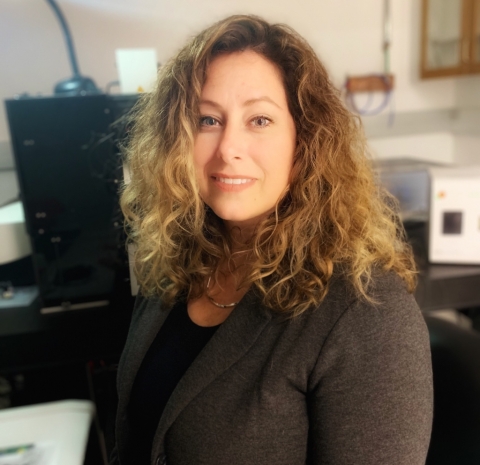ARCS Foundation Scholar Erin Baker says that her scholar award changed her life. While conducting graduate research on the immune system in the genetics department at UGA, Erin encountered a roadblock. She needed a way to build upon analyses typically performed in a culture dish so she could understand how communities of different cell types work together to function as organs. Although Erin had developed techniques to label defined molecules within the intact organ and to render the tissue optically transparent, she needed a microscope that could image such challenging specimens. She learned of a suite of specialized microscopes built to capture three-dimensional (3-D) views of how anatomical structures, cells, and molecules are arranged as organs develop and age. The problem was that the microscopes were three thousand miles away at the University of Southern California (USC).
Dr. Nancy Manley, Erin’s mentor and chair of the Genetics Department at UGA, had long known Dr. Scott Fraser, the founder of the Translational Imaging Center at USC, and urged Erin to propose a collaborative research project between UGA and USC. Fraser, described by Erin as a pioneer in microscopy, approved of her plan, so Erin planned a one-month trip to image her samples at USC. That was two years ago. As Erin says, “I went to USC for a month with one carry-on bag, and I am still at USC, thanks to ARCS. I could never have had the flexibility or afforded to stay in southern California if it were not for my ARCS award.”
Erin is the key link to the collaboration, drawing on the two labs’ disparate strengths to perform better 3-D volumetric molecular imaging and to extract new insights into immune system development. Manley feels the work is making visible some of the key events in immune system development which she had long-suspected but could never prove. Erin says she is “totally enamored” with their work, which is so unique that it is posing a new challenge for Erin: will she carry it forward as a post-doctoral fellow in somebody else’s lab or take an unusually large leap into her own faculty position?
Both Manley and Fraser are supportive of Erin and her eventual choice. Fraser says, “What makes Erin’s work so important is that it draws on the tools of several fields to create new ways of extracting knowledge from the data…. This synthesis makes her uniquely qualified for a faculty post in convergent science.”
Erin says that she looks forward to becoming an ARCS Foundation donor herself since the freedom provided by her scholar award allowed her to blaze her own trail in her field.

